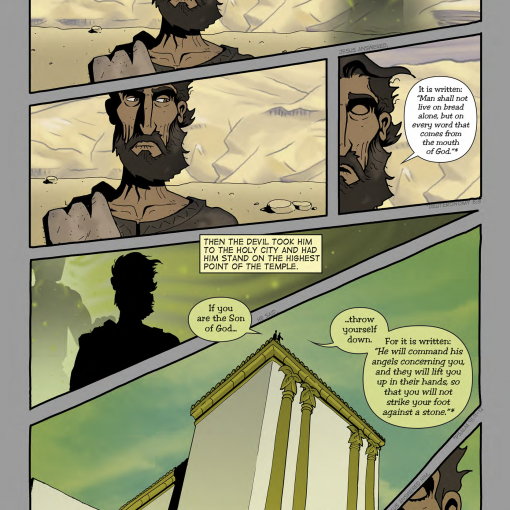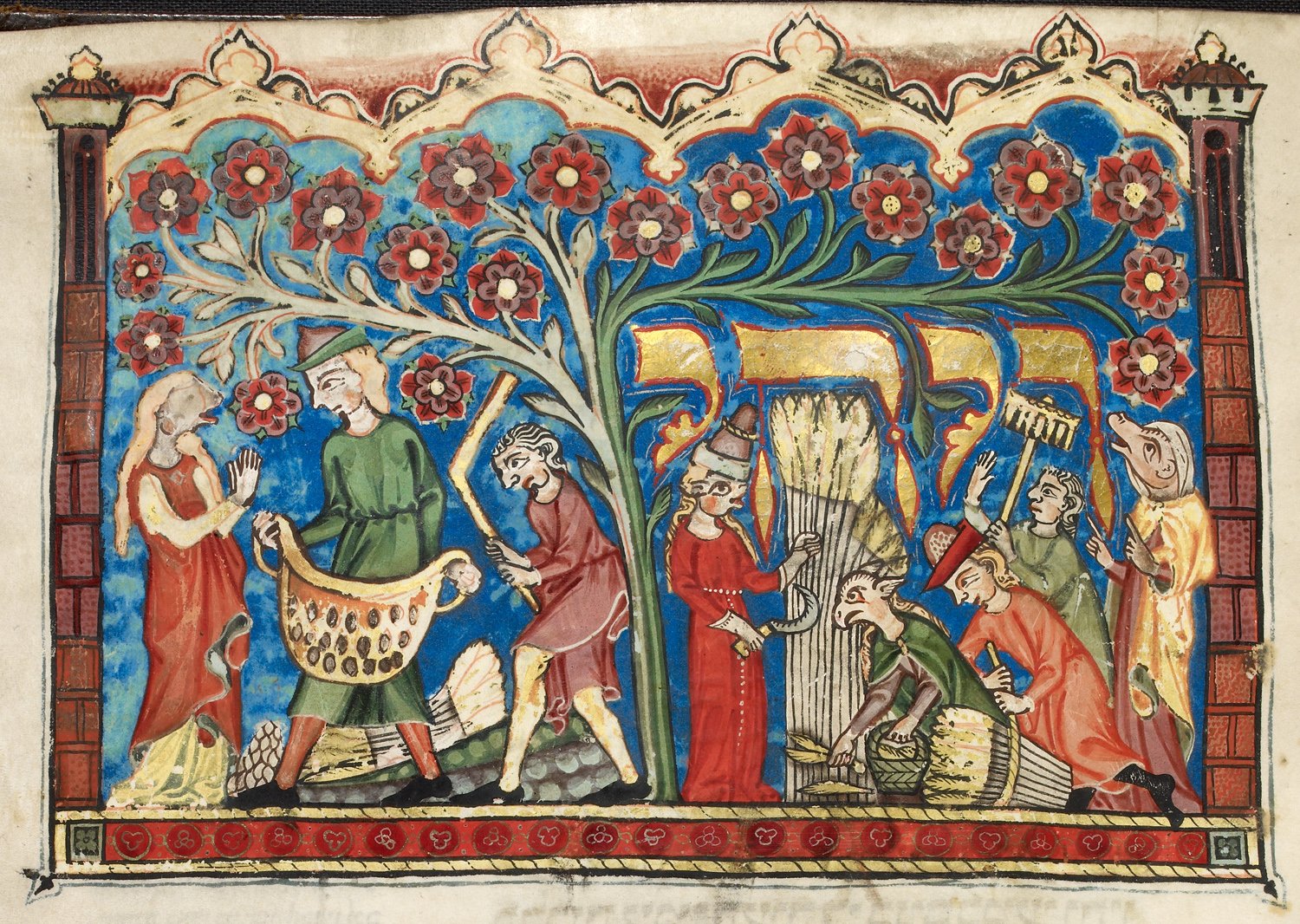Year B – Season after Pentecost
Proper 6 (11) (June 17, 2018)
Fourth Sunday after Pentecost
Readings:
- 1 Samuel 15:34 – 16:13
- Psalm 20
- 2 Corinthians 5:6-10, (11-13), 14-17
- Mark 4:26-34
Kingdoms Rise and Kingdoms Fall But We Go On
As I was reflecting upon our readings this morning I was reminded of a line, it came almost unbidden: “Kingdoms rise and kingdoms fall but we go on.” It is from the band U2’s title track on the album October. It is an incredibly short song. It beautiful in its lyricism, but brief in its lyrics.
October and the trees are stripped bare
Of all they wear.
What do I care?October and kingdoms rise
And kingdoms fall
But you go on
And on.
Bono was asked about the song and the album in a 1982 video interview from a concert in Hattem, Netherlands, and he said “October is an image.” He continued:
“We’ve been through the ’60s, we’ve been through a time where things were in full bloom. We had fridges and cars, and we sent people to the moon. Everybody thought how great mankind was. And now, as you go through the ’70s and the ’80s, it’s a colder time of year; it’s after the harvest, the trees are stripped bare and you can see things. We’ve finally realized, maybe we weren’t so smart after all, now that there’s millions of unemployed people, now that we’ve used the technology that we’ve been blessed with to build bombs for war machines. October is an ominous word. …But October is an optimistic record because through it there is a joy.”
“Kingdoms rise and kingdoms fall, but you go on.” That about sums it up, doesn’t it?
Our readings today (and from last week) give us a few images of kingdom and kingship. In the reading from Samuel we find the prophet being sent by God to anoint the successor to Saul. You may remember from last week’s reading, that the people of Israel wanted “a king like all the other nations.” Samuel warned them what that would mean, the taxes, wars, and their daughters being taken for the king’s own pleasure. But they insisted and so they got Saul, a king who fulfilled both their hopes and fears. He won battles, but was violent and mercurial. God gave Israel what they wanted.
Then he provided them with David. Not a perfect man or king, but one who loved God and when he sinned, as with Bathsheba, he repented and tried to live a holy life. (And still failed. His home life was a shambles by the time he died.). So we see Samuel anointing David to eventually succeed Saul. This is the story we are familiar with, coronations and kings, ruling over the people, leading them into battle and then taxing the people to build his forts and palaces.
But our Gospel offers two very different and curious images of kingdom. First, we are told the kingdom is like the seed that the farmer plants and then, in ways that the farmer does not know or understand, it grows in the secret dark of the ground to become the strong grain that will provide food. Then we are told it is like the mustard seed, small in size yet when full grown it supports life and provides shelter.
This passage in Mark comes shortly after the parable of the Sower, the one who scatters seed on the ground.
“Listen! A sower went out to sow. And as he sowed, some seed fell on the path, and the birds came and ate it up. Other seed fell on rocky ground, where it did not have much soil, and it sprang up quickly, since it had no depth of soil. And when the sun rose, it was scorched; and since it had no root, it withered away. Other seed fell among thorns, and the thorns grew up and choked it, and it yielded no grain. Other seed fell into good soil and brought forth grain, growing up and increasing and yielding thirty and sixty and a hundredfold.” And he said, “Let anyone with ears to hear listen!” (Mark 4:3–9 NRSV)
The seed in this parable is the Word of God and those who hear and receive it are like the seed that fell on the good soil and brought forth grain. Jesus said, “they hear the word and accept it and bear fruit, thirty and sixty and a hundredfold.”
God’s Word, both the message of the Gospel and the Word made flesh, is planted within us, is to be shared, scattered throughout the world. We often may not see it growing, taking shape as it germinates, but it is at work, nonetheless and it yields fruit. At the harvest, the fruit of the kingdom of God will be justice and judgement. If a human king is supposed to bring justice how much more so God’s kingdom? As Paul said, “For all of us must appear before the judgment seat of Christ, so that each may receive recompense for what has been done in the body, whether good or evil” (2 Cor. 5:10).
Yet in the meantime, that kingdom grows as a sheltering plant, offering nourishment, protection, and strength to all who seek shelter in its branches. We, the church, are both the mustard tree and those seeking shelter within it.
The kingdom of God is not like the Kingdom of Israel or any other governing structure, democratic, communist, socialist, or parliamentary. The one anointed to lead begins his reign by giving up his life, as Paul says, “so that those who live might live no longer for themselves, but for him who died and was raised for them.” Because of that, because we are no longer to view people from the “human point of view” but from the divine – all are created in the image of God, we are to be the tree that offers shelter, the grain that sustains.
The question is: are we living out our lives so that “we regard no one from a human point of view” but rather from the divine? Are we loving and caring for the most vulnerable in our communities? We see ample evidence around us that as a society we are not, even when Scripture is quoted and God invoked, the actions speak of a kingdom that is not of God. But we should not be surprised, even David, “the man after God’s own heart,” was despotic. We should not be surprised, but we should not be complacent!
While we live in between, after the planting of the seed, but before the harvest. We are eager to see the Kingdom of God fully, as Paul did, to be “at home in the Lord.” But we know that God’s ultimate justice is for the next world even as he has left us, has blessed us to be about his work in this world. Kingdoms rise and kingdoms fall, but we are to go on.
5:14 For the love of Christ urges us on, because we are convinced that one has died for all; therefore all have died.
5:15 And he died for all, so that those who live might live no longer for themselves, but for him who died and was raised for them.
Amen. ✠





